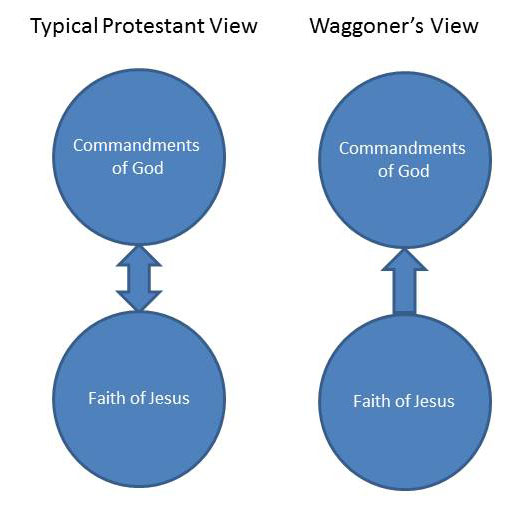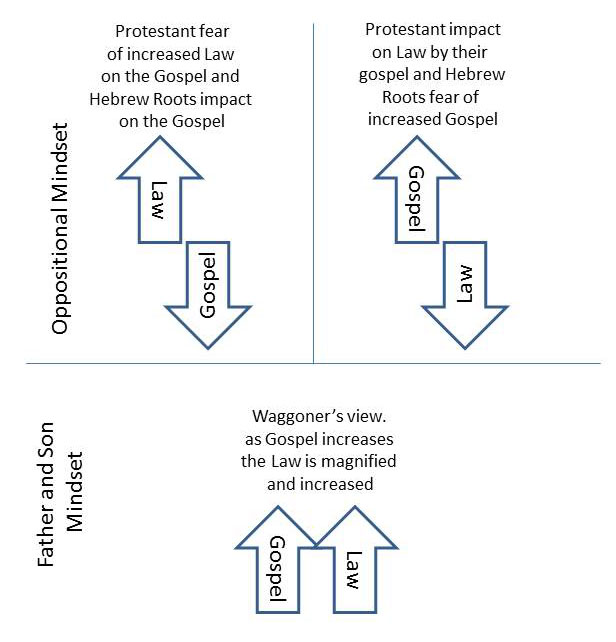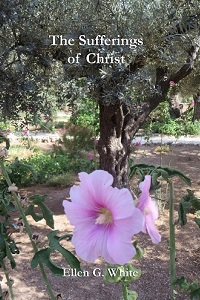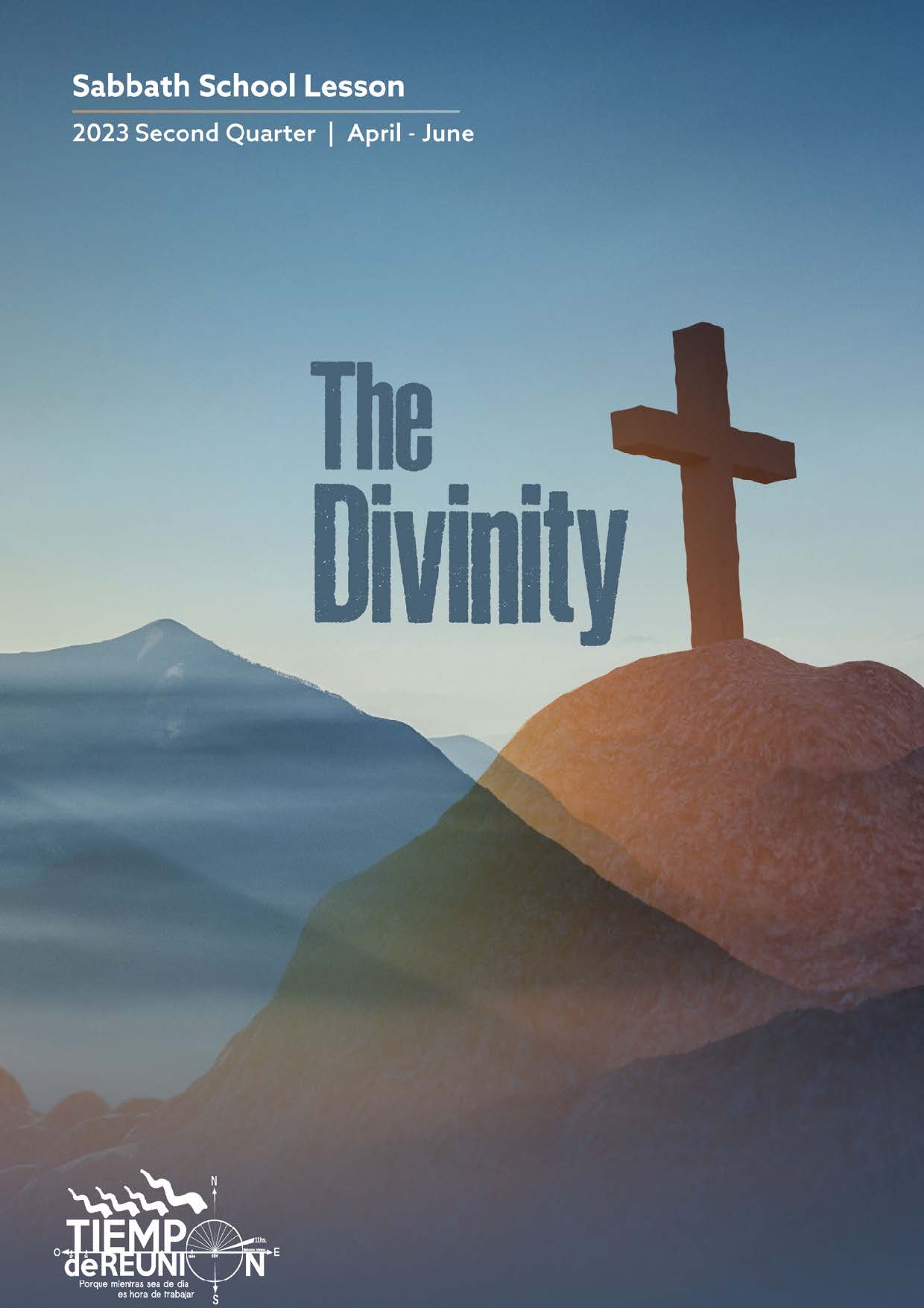Stand by the Landmarks and Build on the Platform
[German]
Seven reasons why I affirm the Annual Sabbaths
Adrian Ebens
June 3rd 2015
At the time of the 1888 conference the General Conference president sent out the message that they should “stand by the landmarks” but in response Ellen White revealed the true situation.
In Minneapolis God gave precious gems of truth to His people in new settings. This light from heaven by some was rejected with all the stubbornness the Jews manifested in rejecting Christ, and there was much talk about standing by the old landmarks. But there was evidence they knew not what the old landmarks were. There was evidence and there was reasoning from the word that commended itself to the conscience; but the minds of men were fixed, sealed against the entrance of light, because they had decided it was a dangerous error removing the "old landmarks" when it was not moving a peg of the old landmarks, but they had perverted ideas of what constituted the old landmarks. {CW 30.1}
Elder Waggoner was bringing forth the beauty of righteousness by faith in the context of the Everlasting Covenant. He was sharing “gems of truth in new settings.” Since the light shared did not come in a context with which some of the leaders were familiar they braced themselves to resist the light with a call to “stand by the landmarks.” This call to stand by the landmarks was designed to create the impression that Waggoner was stepping into apostasy from the original Advent movement. Ellen White indicated that this appeal to stand by the landmarks revealed that these men did not know what the landmarks were and this was simply a tactic used to resist the light.
At the heart of this controversy was the relationship of the law and gospel. The sharpness of focus on this relationship came through a discussion of what changes took place in this relationship between the Old and the New Testament.
At 9 a.m. Elder Waggoner continues his lessons on the law and the gospel. The Scriptures considered were the fifteenth chapter of Acts and the second and third of Galatians, compared with Romans 4 and other passages in Romans. His purpose was to show that the point of the controversy was justification by faith in Christ, which faith is reckoned to us as to Abraham, for righteousness. The covenant and promises to Abraham are the covenant and promises to us. “Third Days’ proceedings,” General Conference Daily Bulletin (Oct 21, 1888)
To state that “the covenant and promises to Abraham are the covenant and promises to us” was to challenge centuries of traditional Christian thought concerning a Christian’s relationship to the Law of God. John Calvin wrote in the 16th century concerning this relationship:
The Old Testament, considered from the distinctive idea of "law," is one of "bondage," whereas the New Testament is one of "freedom" through the gospel (Institutes 2.11.9-10, pp. 458-460).
Yet Waggoner’s challenge to the Christian understanding of the covenants also reveals the confusion that still existed in the minds of many of the reformers. Notice again what Calvin taught:
"The covenant made with all the patriarchs is so much like ours in substance and reality that the two are actually one and the same. Yet they differ in the mode of dispensation [or administration]" (Institutes 2.10.2, p. 429).3 Saints in the Old and the New Testaments share "the same law," "the same doctrine," "the same inheritance," and the "common salvation" by the grace of the "same Mediator" (Institutes 2.10.1, pp. 428, 429).
Can we see the conflict in Calvin’s mind? He expresses at the same time that the covenant that existed in the time of the Old Testament is “so much like ours in substance and reality that the two are actually one and the same,” and yet the Old Testament carries the idea of law and bondage in contrast to the New Testament experience of freedom in the Spirit. Bondage and Freedom are not one and the same. They are diametrically opposed. So for Calvin to express the two covenants as one and the same and yet to call the era of the Old Testament bondage as opposed to the era of the New Testament freedom is to drive a wedge into the everlasting covenant and make it impossible for the one gospel to exist in both Testaments.
The subtlety of this deception goes even further because there is indeed a contrast in the Old and New Covenant but in placing this contrast into the time periods of the Old and New Testaments rather than Old and New man, the wedge in the everlasting gospel remains as a virus in the hearts of men that will crush their ability to see the gospel in its purity. Notice the words of the Baptist Confession of faith from 1689:
The two classes of covenants, resolved into two covenants; their nature, and contrast; old covenant fulfilled, and superseded by the new; preparation of the Gentile world for Messiah’s coming; nature and excellence of the gospel. http://founders.org/library/covenants/ch8/
Two Perceived Classes of Covenant
Old Covenant New Covenant
Old Testament New Testament
Bondage Freedom
Literal Law Keeping Spiritual Righteousness
Moses Christ
Law Gospel
The very words “two classes of covenant” automatically suggest two classes of gospel. One class is bondage and the other class is freedom. One class is literal law keeping and the other class is spiritual righteousness in Christ alone. This framework undetected would ensure the fourth angel of revelation could never shine in its brightness.
Yet if Waggoner was correct and the same promises and covenant existed in the time of Abraham and Moses then it is a completely false notion to speak of the time of the Old Testament as a time of bondage and the New Testament as a time of contrasted freedom for the same freedom existed in the time of Abraham for those accepting the New Covenant then and the same bondage existed in the New for those rejecting it.
Old Testament New Testament
Old Covenant - Old Man -------- Legalistic Law-Keeping
New Covenant - New Creation – Righteousness by Faith
This new setting that Waggoner was explaining collided with what many church leaders considered to be a landmark of the church regarding the added law in Galatians 3. That discussion is beyond the scope of this paper but a detailed explanation of this history can be found in the book Calvary at Sinai by Paul Penno. Suffice to say that Ellen White received a message from heaven to show that Waggoner was onto something very important.
Night before last I was shown that evidences in regard to the covenants were clear and convincing. Yourself, Brother B, Brother C, and others are spending your investigative powers for naught to produce a position on the covenants to vary from the position that Brother [E. J.] Waggoner has presented. Letter 59, 1890, p. 6. (To Uriah Smith, March 8, 1890.)
Since I made the statement last Sabbath that the view of the covenants as it had been taught by Brother Waggoner was truth, it seems that great relief has come to many minds.--Letter 30, 1890, p. 2. (To W. C. White and wife, March 10, 1890.)
So to summarise the significance of what Waggoner was saying through the covenant question is that over 1000 years of Catholic and Protestant thought on the relationship of the law and the gospel was incorrect. The woman of Revelation 12 who had fled into the wilderness carrying the literal rule of interpretation possessed a correct understanding of this relationship of the law and gospel but much of this was lost through the wearing out of the saints of the Most High and through the adoption of a spiritualised method of reading the Bible.
The notion expressed by Calvin that the Old Testament era was one of bondage and that the gospel set people free from the Law found free expression in Adventism because many Adventists were coming from these other Protestant communions. G.I Butler expressed this sentiment when he said:
“The law of rites had an immense amount of these, so that they constituted a ‘yoke of bondage’ grievous to be borne, which Paul claimed has passed away” Quoted in Gospel in Galatians by E.J Waggoner Page 4.
This idea expressed by Butler about a yoke of bondage found in the law of God from Mount Sinai means that the law and the gospel are inherently in opposition to each other. The idea is that the gospel frees us from the bondage of the law. This is simply what John Calvin and many who followed his reformed theology taught. Butler was simply walking in the footsteps of these men.
Waggoner detected the two classes of gospel that G.I Butler was presenting. He quotes Butler and then responds:
"There was no propriety, therefore, in still keeping up the wall of separation between them and others. They all stood now upon the same level in the sight of God. All must approach Him through the Messiah who had come into the world; through Him alone man could be saved." (Quote from G.I Butler)
Do you mean to intimate by this that there was ever a time when any people could approach God except through Christ? If not, the [8] language means nothing. Your words seem to imply that before the first advent men approached God by means of the ceremonial law, and that after that they approached Him through the Messiah; but we shall have to go outside the Bible to find any support for the idea that anybody could ever approach God except through Christ. Amos 5:22; Micah 6:6-8, Gospel in Galatians, E.J Waggoner, 1888, page 7,8
Waggoner identified the heart of the problem by showing that Butler and much of the leadership were actually suggesting that people in the Old Testament had to approach God through the law without the righteousness of Christ which is claimed to only have appeared when Christ came to earth. Earlier on page 7 of his book, Waggoner identifies the true gospel in terms that do go to the foundations or landmarks of Adventism
The true gospel is to keep the commandments of God and the faith of Jesus. The perverted gospel which the Galatians were being taught, was to keep the commandments of God, and circumcision. Gospel in Galatians, E.J Waggoner, 1888, page 7.
Waggoner reveals that there is no conflict between the Commandments of God and the faith of Jesus. The true gospel teaches an expansion of the keeping of the commandments through the faith of Jesus. This is the landmark teaching of Adventism. Probably the earliest printed statement of Adventist beliefs occurred in 1853 in response to a request by the Seventh-day Baptists. In the August 11, issue of the Review and Herald, James White summarized,
We are united in these great subjects: Christ’s immediate personal second Advent, and the observance of all the commandments of God, and the faith of his Son Jesus Christ, as necessary to a readiness for his Advent. RH Aug 11, 1853.
When James White stated “the observance of all the commandments of God” does this not suggest a forward progression of thought towards keeping all of God’s commandments? Yet in making this a landmark teaching the Advent movement came in direct conflict with John Calvin and the entire Protestant movement because an increase in commandment keeping for them means an automatic decrease in the gospel of Christ. Since Protestantism places the Old Testament as an era of bondage and the New Testament as an era of freedom, any suggestion of increased law observance must certainly pervert their understanding of the gospel and it is exactly this false pattern of thinking that has kept Protestants from embracing the Sabbath because to them to embrace the Sabbath is to pervert the gospel. To embrace the Sabbath is to seek to be righteous by works because Protestants have no concept of Law keeping aided by the true gospel; because the Old Testament for them really does not have the true gospel. They are forced to take a position of opposition to what they perceive is occurring in the Old Testament.
To summarise this problem we see that Protestants see the Commandments of God in opposition to the faith of Jesus, whereas Waggoner was showing that the faith of Jesus is the means by which we keep the commandments of God and this is exactly what Ellen White said concerning the 1888 message.
The Lord in His great mercy sent a most precious message to His people through Elders Waggoner and Jones. This message was to bring more prominently before the world the uplifted Saviour, the sacrifice for the sins of the whole world. It presented justification [92] through faith in the Surety; it invited the people to receive the righteousness of Christ, which is made manifest in obedience to all the commandments of God. Testimonies to Ministers 91,92

If we note carefully the text of Revelation 14:12 that joins the terms commandments of God and the faith of Jesus:
G2532 και? [kai] kah-ee
Apparently a primary particle, having a copulative and sometimes also a cumulative force; and, also, even, so, then, too, etc.; often
The word has a copulative and sometimes cumulative force. This gives the sense that the second element is an expansion or magnification of the first and this is exactly what Jesus said He would do.
Think not that I am come to destroy the law, or the prophets: I am not come to destroy, but to fulfil. Matt 5:17
The faith of Jesus does not diminish the law but rather fulfils or fills it full. The faith of Jesus magnifies and expands the law in all its glory. Yet in considering the Old Testament as an era of bondage and the New as an era of freedom, Calvin and most of the Protestant churches perceive the faith of Jesus as being against the commandments of God being given in the Old Testament. So any attempt to point out the importance of the Law from the Old Testament is a direct attack on the gospel.
The ability of Seventh-day Adventists to embrace the Sabbath as part of the gospel of Christ rather than being against the gospel of Christ established a landmark and foundation that the gospel will manifest obedience to all the commandments of God, it will not seek to point out obedience to the law as legalism. To stand upon the landmarks of Adventist faith is to progress towards keeping all the commandments of God by the faith of Jesus.
Now the problem for many Adventists is that in uplifting the commandments of God, they did indeed begin to move away from the gospel of Christ. The same oppositional mindset caused them to still see the law against the gospel but they chose the law rather than the gospel. Of course this creates a reaction in those who can see the futility of trying to keep the law outside of Christ. And so Ellen White states:
There are those who profess to believe and to teach the truths of the Old Testament, while they reject the New. But in refusing to receive the teachings of Christ, they show that they do not believe that which patriarchs and prophets have spoken. "Had ye believed Moses," Christ said, "ye would have believed Me; for he wrote of Me." John 5:46. Hence there is no real power in their teaching of even the Old Testament. Many who claim to believe and to teach the gospel are in a similar error. They set aside the Old Testament Scriptures, of which Christ declared, "They are they which testify of Me." John 5:39. In rejecting the Old, they virtually reject the New; for both are parts of an inseparable whole. No man can rightly present the law of God without the gospel, or the gospel without the law. The law is the gospel embodied, and the gospel is the law unfolded. The law is the root, the gospel is the fragrant blossom and fruit which it bears. {COL 128.2}
In this one statement we can sum up much of the conflict amongst God’s people regarding the law and the gospel. Jesus is the manifestation of the Law of His Father. He is the express Image of the Father’s Law. Yet the Faith of Jesus contains the power to produce the law in us. Without the faith of Jesus, the Law will always be a yoke of bondage, but in Christ we are free from the carnal mind and we can say “oh how I love your Law.”
If our youth would take heed to the rules laid down in this chapter [2 Peter 1] and practice them, what an influence they would exert on the side of right! . . . No longer would the law which they have transgressed be a yoke of bondage, but it would be the law of liberty, the freedom of sonship. Having repented toward God, having exercised faith in Christ, they have experienced forgiveness, and esteem the law of God above gold, yea, above fine gold. {TMK 160.3}
So we see that there is indeed a transition from bondage to freedom but this transfer is for each individual not from one dispensation to another.
Abraham actually saw Christ's day, and rejoiced in it, although he died 2,000 years before the first advent. And this most positively proves that the apostle, in the third chapter of Galatians, is speaking of individual experience, and not of dispensational changes. There can be no Christian experience, no faith, no justification, no righteousness, that is not an individual matter. People are saved as individuals, and not as nations. , E.J Waggoner, Gospel in Galatians, 1888, Page 33.
With these thoughts in mind, we must understand that the typical Protestant understanding of Acts 15, Colossians 2, Galatians 3 and the book of Romans is saturated in a mindset that places the Commandments of God against the Faith of Jesus. One of the greatest barriers to accepting the Sabbath is the passage in Colossians 2:16-17
Col 2:16-17 Let no man therefore judge you in meat, or in drink, or in respect of an holyday, or of the new moon, or of the sabbath days: (17) Which are a shadow of things to come; but the body is of Christ.
Since this passage references laws from the Old Testament, the Protestant oppositional framework that forces the faith of Jesus to be against the law of God would cause such readers of this passage to interpret it in a way that freed people from its observance. The Protestant understanding of the covenants suggested that any keeping of these days would automatically pervert the gospel and therefore it had to be interpreted in a way that freed men from the law in order that they could have the gospel. Therefore, when Adventists came to this passage, it was a giant wall against them preventing them from accepting the Sabbath. Their mode of escape came by redefining the word for Sabbath to mean the annual feast Sabbaths and not the weekly Sabbath. This indeed was a helpful tool to release the Sabbath, but it did not unlock the Adventist movement from the false contrast of the law and the gospel. Evangelicals look at how Adventists interpret Col 2:16 and they laugh at what to them is so obvious a reference to the Sabbath that is a shadow that was nailed to the cross. They are puzzled at Adventists using their oppositional framework of the law and the gospel to prove the Sabbath. It makes no sense at all and they are completely correct in this. For an understanding of Col 2:16-18 that is in harmony with the Commandments of God and the faith of Jesus see Showing Respect for Colossians 2:16,17 on www.adrianebens.com

So when Waggoner presented a new understanding of the covenants, a door was opening for a better understanding of the relationship of the commandments of God and the faith of Jesus. The teaching of Waggoner would allow Adventists to faithfully fulfil the landmarks of their foundations when James White said:
We are united in these great subjects: Christ’s immediate personal second Advent, and the observance of all the commandments of God, and the faith of his Son Jesus Christ, as necessary to a readiness for his Advent. RH Aug 11, 1853.
Butler wished to maintain the Protestant concept of the covenants that viewed them against a backdrop of dispensational periods. He then combined this false understanding with a command to stand by the landmarks, but as Ellen White pointed out, many leaders did not know what the landmarks were. When Ellen White began to grasp what was happening in 1888 she made this critical observation:
When they came into the meeting in the morning I was surprised to hear Elder _____ make the kind of speech he did before a large audience of believers and unbelievers--a speech which I knew could not be dictated by the Spirit of the Lord. He was followed by Elder _____, who made remarks of the same order, before Brother _____ began his talk, which was all calculated to create sympathy which I knew was not after God's order. It was human but not divine. And for the first time I began to think it might be we did not hold correct views after all upon the law in Galatians, for the truth required no such spirit to sustain it. 1888 Study materials, page 221
The spirit that was manifested against the teaching of Waggoner on the covenants caused Ellen White to realise that the Adventist understanding of the law in Galatians could be wrong. For her to make this statement means that she did not connect the then current understanding of the law in Galatians to the landmarks of the Adventist movement. This admission followed later by the heavenly visitor that showed Ellen White that Waggoner had the truth on the covenants opened the way for the full understanding of the true relationship of the Commandments of God and the faith of Jesus.
A careful study of the book by Paul Penno, Calvary at Sinai and the writings of the 1888 Study committee will reveal that Adventists never escaped the false view of the covenants and it still refuses to do so.
At this current time, a movement has arisen amongst God’s people that is once again asking the question about the relationship between the Commandments of God and the faith of Jesus. In the question concerning the Feasts and New Moons and their observance is a deeper question concerning the Law of God and the faith of Jesus. With the Protestant view of the covenants, any movement towards keeping all the commandments of God must automatically be seen as treason to the gospel. The complication with the feast question is that some indeed are seeking to approach the law without a correct understanding of the gospel. As Ellen White indicates:
There are those who profess to believe and to teach the truths of the Old Testament, while they reject the New. COL 128
The Sacred name movement with its rejection of anything Greek is a typical example of simply polarising those who see the upholding of the statutes as treason to the gospel. Both positions reject the Father and Son relationship of the Commandments of God and the faith of Jesus. Much of the Hebrews roots movement that reject all things Greek are destined to completely fail of receiving the righteousness of Christ and the faith of Jesus. Conversely those who feel bound to reject any advance towards the statutes and the judgements as treason to the gospel will also fail to manifest obedience to all the commandments of God and are bracing themselves against the light of present truth and the landmarks of Adventism which promises the righteousness of Christ in obedience to all the commandments of God.
The feast question in its right context is really a test question on the covenants and whether we can see them in their proper light. A smokescreen has been erected in the Hebrew roots movement coming into Adventism that is alarming Adventists who know that righteousness only comes through Christ Jesus. In an attempt to protect against this legalist invasion, the cry goes up that we must stand by the landmarks and reject the statutes of Moses. This is the same voice that was raised in 1888 and sent God’s people into the wilderness. Those who raise this cry today are repeating this history and are bracing themselves against the light lest they should receive the righteousness of Jesus that is manifested in keeping all the commandments of God.
The feast question should not be considered a test question of fellowship yet this is exactly what is taking place. What is a test though is the question of the covenants and whether we will accept the messages of Jones and Waggoner on this subject that the prophet clearly said was from heaven. There is no excuse for rebellion on this question, the evidence is clear and convincing. This is the line of demarcation because it sets the foundations of the gospel on an entirely different path and causes a return to the gospel of the daughters of Babylon. It is a retreat from the light. Study and understand the booklet the Gospel in Galatians by E.J Waggoner and Paul Penno’s Calvary at Sinai. These are testing truths at this time.
To those who claim to be standing by the landmarks in rejecting the statutes and Judgements, I say that you are bracing yourselves against the light and are in great danger. To point to the position of the pioneers as not accepting the feasts as being part of the foundations and pillars reveals a lack of understanding as to what the landmarks are and how they are built upon. Take heed lest you fall. To those who reject all things Greek and are fixated upon Jewish traditions not found in Scripture, I say repent and believe the gospel lest Christ be made of none effect to you. We want all the commandments of God but only by the faith of Jesus and this is the truth of what it means to advance on the landmarks.
One of the key reasons why I have found a blessing in the observance of the feasts is because it requires people to clarify their understanding of the covenants. Those who like Butler are determined to maintain a dispensational platform will not be able to stand on the Landmark of keeping ALL the commandments of God. The Protestant oppositional platform will not allow advances in observances of the law of God, it can at best maintain the advances that were made by the pioneers but those who are deeper Bible students will seek to make their gospel consistent with their platform and this must therefore mean a retreat from the commandments of God because it is perceived as anti-gospel.
The second reason that I have found a blessing in the feasts is that I wish to expose the legalism contained in the idea that you MUST NOT do something to be saved. Telling people they are lost for offering praise and worship to God at certain times is legalism and salvation by not doing something. It is also a threat to religious liberty for things that were clearly observed by the Patriarchs, Christ, the apostles, the early church and the woman that fled into the wilderness.
The third reason I have found a blessing in the feasts is that it reveals a perfect expression of the divine pattern within the Sabbath. The weekly observance of the Sabbath based upon the earth’s connection to the Sun and the annual observance of the Sabbaths based on the earth’s connection to the moon provides a signature to the Father and Son relationship in the Sabbath that is beautiful. It also tests to see whether people are truly observing the Sabbath by faith or by works. If a person says I observe the Sabbath because the eternal law of God commands it then without the faith of Jesus this is legalism. But if the Sabbath is observed by faith then exactly the same principle applies to the other Sabbaths.
The fourth reason I have found a blessing in the feasts is that it manifests the plan of salvation in a corporate body of believers visibly. It is not simply a belief that I maintain in my head but this belief finds expression and expansion in a body of believers and the sequence is followed each year. The invisible becomes visible, the source finds a channel of expression that brings great blessing to the people of God. Against such there is no law.
The fifth reason I have found a blessing in the feasts is the freedom and joy I have found in the Spirit at these times. I have found it has blessed my preaching, my health and my fellowship experience in a way not revealed previously. The magnification of blessing is truly apparent. Yes, this is a subjective reason but reason without expression stands alone and is lifeless.
The sixth reason I have found a blessing in the feasts is the discovery within me of a subtle spirit of intolerance towards the Biblical worship practices of others with which I have not been familiar. The seeds of this intolerance I have witnessed grow around me into an intense un-Christ-like spirit manifested towards any who would support them. This has caused me to say like Ellen White “Maybe we have been wrong about the law in Galatians” for the truth does not need this spirit of intolerance to support it. I thank the Lord to be free of this spirit of intolerance born of a fear of something unfamiliar. Conversely I have found freedom in maintaining my love of Jesus speaking Greek in the New Testament and no fear of using a razor. On both sides the spirit of intolerance abounds and I don’t want any of this in my heart towards anyone. The study of the feast question helped me to realise that I needed to grow in this area and I want to keep growing.
The seventh reason I have found a blessing in the feasts is that the fountain that flows out of the Sabbath and into the feasts shows clearly that the Sabbath does sanctify us. The feasts underline the sanctifying reality of the Sabbath.
To those who keep holy the Sabbath day it is the sign of sanctification. True sanctification is harmony with God, oneness with Him in character. It is received through obedience to those principles that are the transcript of His character. And the Sabbath is the sign of obedience. He who from the heart obeys the fourth commandment will obey the whole law. He is sanctified through obedience. {6T 350.1}
Those who reject the principle of God giving His Spirit at special times will be hard pressed to explain why they keep the Sabbath except as a legal requirement of God, which clearly is legalism. Those who keep the Sabbath out of a legal obligation will recoil from adding to this additional Sabbaths. Such an idea to them must be considered anathema. Such a position leaves one vulnerable to abandoning the Sabbath of the fourth commandment or conversely to seeking to please God by their works.
The reason why it is impossible to tell Adventists they should keep the feasts is that the understanding of the covenants for most people causes such a statement to be considered anti-gospel, therefore I would say to all those who love the feasts, do not tell people they must keep the feasts—your words will be completely misunderstood because of the covenant question. Such a call causes people to hear that you must do these things to be saved and of course they will resist any such call. Debating this subject with those who stand on a dispensational understanding of the covenants is a complete waste of energy and effort. This question does not need to be debated, it needs to be experienced and enjoyed. Taste and see that our Father’s feasts are a blessing that He has not withdrawn. Don’t argue about it, simply live it and smile with joy. The joy and freedom of our worship will overcome the spirit of tyranny against it.
The closing words of Malachi are calling out to us today as a prophecy for the last days
The closing words of Malachi are a prophecy regarding the work that should be done preparatory to the first and the second advent of Christ. This prophecy is introduced with the admonition, "Remember ye the law of Moses my servant, which I commanded unto him in Horeb for all Israel, with the statutes and judgments. {SW, March 21, 1905 par. 1}
Who is willing to heed this prophecy in preparation for the second coming of Christ? Who wishes to receive from the fountain that flows out of the Sabbath at our Father’s appointed times? The ability to hear this call depends on whether you can build on the landmark of Adventism concerning the law of God and the faith of Jesus in a correct manner.





